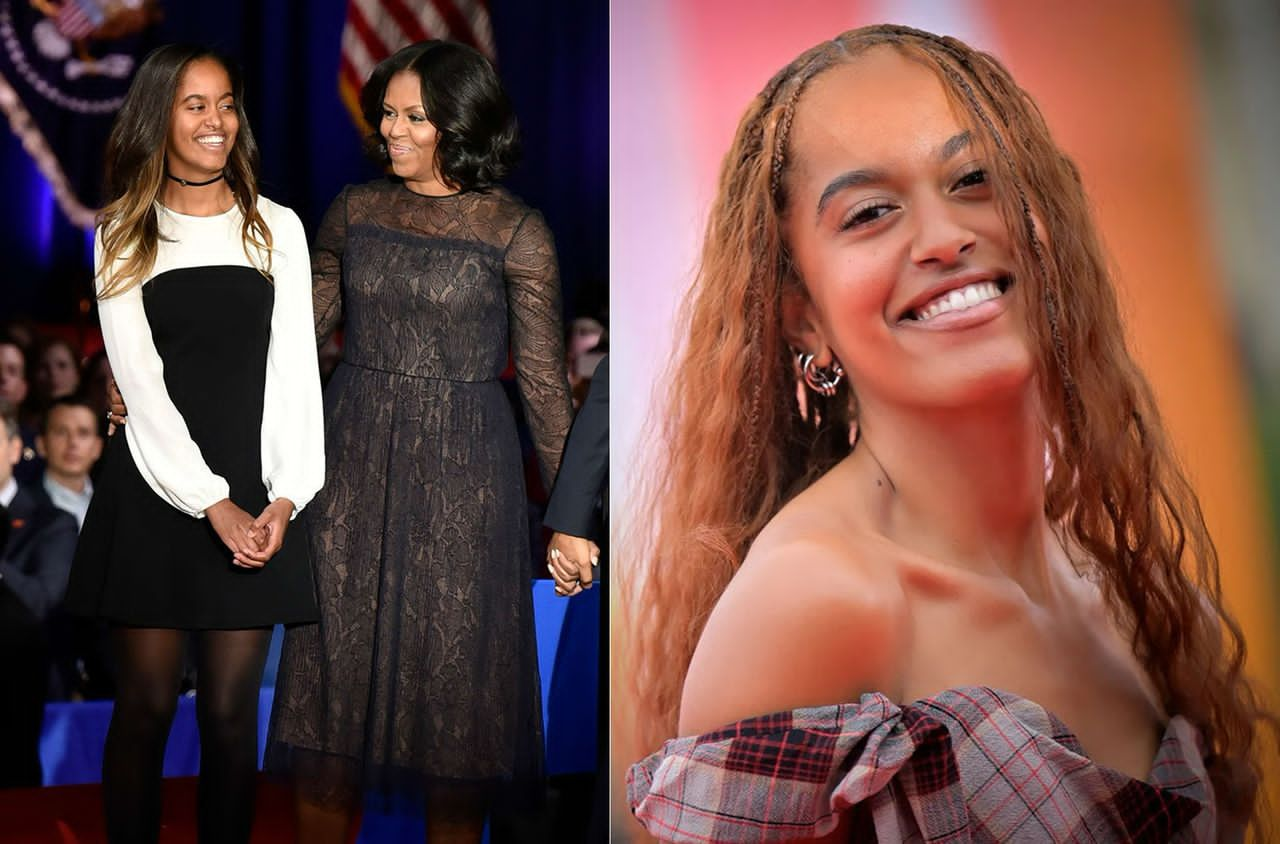
Malia Drops ‘Obama’ – Michelle Obama Says It’s About Earning Respect, Not Hiding Fame

In a revelation that has sparked widespread conversation about identity, legacy, and self-determination, Michelle Obama has opened up about her eldest daughter, Malia, dropping her iconic last name. The former First Lady offered candid insight during a recent public appearance, explaining that the decision was rooted not in rejection of her family name, but in a desire for independence and merit-based recognition.
Malia Obama, now 26, has begun using only her first name in professional circles, particularly in the creative industry where she is building a career as a screenwriter and filmmaker. Her choice has drawn attention not just for what it symbolizes on a personal level, but for the broader commentary it makes about the complicated experience of growing up in the public eye—and the determination to step out of that shadow on one’s own terms.
“They don’t want people to assume they don’t work hard or that things are just handed to them,” Michelle Obama said in response to the growing curiosity around Malia’s recent decision. Her words, firm but empathetic, revealed the emotional weight that often accompanies the children of public figures, particularly those raised during a historic presidency.
The Obama daughters—Malia and Sasha—entered the White House as young girls and exited as young women, their entire adolescence lived under the lens of global scrutiny. From school choices to summer jobs to dating lives, every move they made was dissected. Even in private, anonymity was a luxury they were never allowed. But as they’ve transitioned into adulthood, both have made deliberate efforts to forge their own identities, ones not defined solely by their famous last name.
Malia’s choice to drop “Obama” professionally appears to be a strategic and deeply personal step in that journey. Currently working in Hollywood, where the weight of a recognizable last name can be both a key and a cage, she’s chosen a path that requires her to be judged for her talent alone. It’s a radical move in a town where name recognition is currency, and it speaks volumes about the values instilled in her by her parents.
Michelle Obama, known for her grounded wisdom and protective instinct toward her daughters, emphasized that this isn’t about shame or distance. “It’s not that they’re trying to hide who they are,” she explained. “They’re proud of their family. But they want the respect that comes from people seeing their work first, not their lineage.”
This nuanced explanation offers a glimpse into the Obama parenting philosophy—a balancing act between shielding their daughters from an intrusive world and empowering them to navigate it with grace and authenticity. Malia’s decision becomes more than a stylistic preference; it’s a declaration of independence in a society obsessed with labels and lineage.
In many ways, Malia’s story echoes a broader cultural shift happening among children of public figures, celebrities, and influential families. As conversations about nepotism, privilege, and inherited opportunity continue to swell—particularly in the entertainment and creative industries—more young adults are seeking to define themselves outside of their famous associations. In choosing to shed her last name, Malia aligns herself with a generation pushing back against assumptions and demanding to be recognized for individual merit.
Hollywood has no shortage of “nepo babies,” a term coined to describe the children of celebrities who benefit from their parents' fame. But Malia, by all accounts, is determined not to be one. Insiders say she’s intentionally stayed out of the limelight, declined high-profile projects that trade on her name, and focused instead on building a body of work that speaks for itself. Her decision to drop “Obama” may just be the most public expression of that private mission.
For Michelle Obama, the moment is understandably bittersweet. Any parent would be proud to see their child seek to define themselves, yet there’s an emotional poignancy to watching a name once carried by a movement—“Obama”—being set aside, if only professionally. But in her typical style, Michelle frames the act not as a loss, but as a testament to growth and self-respect.
“She’s doing exactly what we raised her to do,” Michelle said. “To think critically. To own her choices. To stand in her truth.”
The news has prompted widespread discussion online. Some have praised Malia’s decision as brave and dignified, a smart way to protect her artistic integrity. Others question whether such a name could ever truly be left behind, especially one so globally recognized. But in either case, Malia’s move has reignited debates around legacy, personal agency, and the double-edged sword of fame.
Interestingly, Malia isn’t the first child of a public figure to alter or obscure their last name in order to claim independence. Nicolas Cage, born Nicolas Coppola, dropped his famous surname to avoid being associated with director Francis Ford Coppola. Similarly, Emilio Estevez opted not to use the Sheen surname, distancing himself from his father Martin Sheen. These decisions, while often fraught, can become powerful acts of self-definition.
In that context, Malia’s choice fits into a long lineage of young creatives refusing to let a name, no matter how storied, dictate their path. And if history is any indication, the most successful among them are the ones who do it not out of rebellion, but out of a quiet, unwavering belief in their own voice.
Malia has remained largely silent on the matter herself, letting her work and actions speak for her. In a world saturated with noise and self-promotion, her silence is perhaps the most potent message of all: that she is here to be heard on her own terms, with no need for introduction.
For now, one thing is clear—Malia, like her parents, is making history in her own way. And if her decision to drop her last name is any indication, the next chapter of that story will be written not under the weight of expectation, but in the light of self-made promise.


